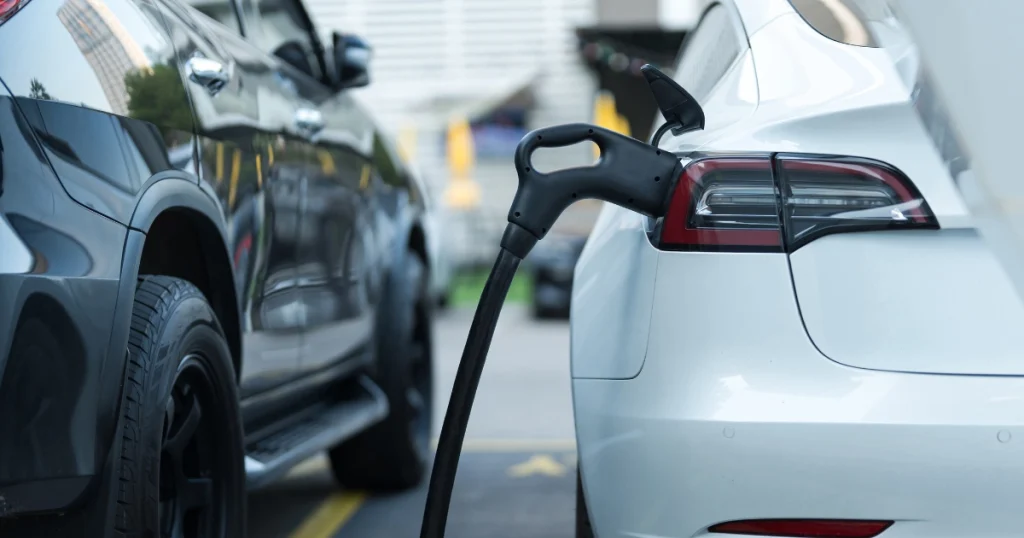Contents
- What are the main considerations when buying a car through a company?
- How Do I Get Tax Relief?
- Tax Implications for Personal Use of a Company Car
- The Specific Rules
- What’s the Alternative to Buying a Car Through a Limited Company?
- Don’t let the Tax Tail Wag The Dog!
- Summary
- FAQ
Pros and Cons of Buying a Car Through a Limited Company
Buying or leasing a car through a limited company can give you significant tax savings, but it is also the one area in which you could end up paying far more tax if you get the planning wrong.
Whilst the benefits can include being able to save corporation tax, VAT and dividend tax by having the company pay for the car before it pays you, the worst case scenarios contain instances where unsuspecting directors pay more in company car tax and fuel benefit tax than the vehicles are actually worth.
Tax savings are a big incentive when buying or leasing a car through a limited company but you often need to take a step back and look at the overall picture. When you put a car through your business the pros and cons will look a bit like this.
Pros: Corporation Tax Savings, VAT Savings, Dividend/Employees NIC Tax Savings
Cons: Benefit in Kind Taxes, Class 1A National Insurance, Not being able to claim mileage at 45p/25p
Why you should work with us
- Three working hour response target for queries
- Fixed monthly payments and any ad hoc fees pre-agreed
- Full UK based team in the office 9-5 Monday-Friday
- All-inclusive tax planning and software support
- Inclusive support for tax investigations and issues
*T&C’s apply
Key Points
- Buying a car through a limited company can give you big tax benefits, especially for electric vehicles, plugin hybrids, vans and pool cars.
- Personal use of a company car has extra tax implications, BIK tax, VAT reclaim and Class 1A National Insurance Contributions, so no emission vehicles are more tax efficient.
- In general petrol or diesel cars where there is some personal use of the vehicle should not be provided by the company as the benefit in kind taxes are extortionate.
1. What are the Main Considerations When Buying a Car Through a Limited Company?

You can buy or lease a car through your limited company, many do, but for it to be tax efficient there are several factors to consider:
- Will the vehicle be only used for business
- The CO2 emissions of the vehicle and the list price
- Your expected annual business mileage
- Is your arrangement a Hire or a Purchase
Why Does it Matter if the Vehicle is Only Used for Business?
Part of the pain associated with company vehicles comes from the benefit in kind taxes that are due on their personal use. If there is no personal use or it is considered incidental, for example in the case where there is a commercial vehicle or a pool car then this problem is solved.
The business exclusivity of the use of the vehicle also determines whether or not VAT can be claimed and also what proportion of it.
I’ll talk about pool cars, commercial vehicles and the concept of incidental use later in this article.
Why Are the CO2 Emissions and List Price of the Vehicle Relevant?
The CO2 emissions are relevant because they determine the amount of Benefit in Kind tax you pay and the associated Class 1A employers national insurance. Unlike other types of business expense, these taxes are determined based on the emissions of the vehicle and not the value of the vehicle.
This is how you can end up with the paradox of paying more in tax than the actual car is worth in the instance you buy a cheap car through your company with a high emissions level. In this type of scenario it is often the case that the benefit in kind taxes owed to HMRC are greater than the corporation, VAT and dividend tax savings.
What you paid for the vehicle doesn’t matter, the BiK calculations are based on the list price and CO2 emissions. You could buy an old car for £500 with a list price of £50,000 brand new, drastically effecting your BiK tax bill, which will be further compounded by the fact that you can only claim corporation tax relief on the £500 so you get the worst of all worlds.
This is why electric cars are so tax efficient because they are really the only type of car where the benefit in kind taxes you pay are lower than the tax savings you get by putting the costs through your business, so you save more tax than you pay!
Why Do You Need to Consider Your Expected Business Mileage?
There is the possibility that the amount you could claim in mileage tax savings by owning the vehicle personally, could be much higher than the amount you will save by putting the vehicle through the business and saving on the actual costs.
Why Is There a Tax Difference Between Hiring and Purchasing a Vehicle?
Unfortunately there is a difference in the tax savings available between the two options, this mainly comes down to the fact that where you have personal use on a purchased car then you are prohibited from reclaiming any VAT on the price. In contrast where you hire a car with some personal use, you can still reclaim half of the VAT you pay. There are exceptions to this which I’ll cover later in the article.
The terminology can get very confusing, but in general here are the terms:
Hire – Business Contract Hire, BCH, Rental, Operating Lease
Purchase – Hire Purchase, Finance Lease, Loan Agreement, BCH, Business Contract Purchase
It’s worth bearing in mind that you can have pay monthly options when you purchase a vehicle so it doesn’t automatically make it a hire. It is definitely worth checking with your accountant if you’re not sure and also bear in mind that anything in your personal name like a PCH, PCP or an invoice made out to you do not count.
To make it even more complex both hire and ‘purchase on finance’ routes can give you the opportunity to buy the vehicle at the end. If the option to buy is at market value then the agreement is a hire, if the price is pre-agreed at the start of the contract then it is a purchase.
There is also a difference in corporation tax treatment between the two options impacting cashflows, which I’ll cover later in the article.
2. How Do I Get Tax Relief?
There are several different taxes on which you can save money which I’ve outlined below.
Corporation Tax Relief
Corporation tax relief is achieved by adding the vehicle as an expense to lower your taxable profits, however unlike many other types of expenses in your business the amounts you can claim as an expense are more complex to calculate.
When Purchasing
Companies can use 6% or 18% capital allowances, 100% first year allowance or in some cases Annual Investment Allowance to deduct part or all of the car’s purchase price from their taxable income and get corporation tax relief. The amount of relief depends on various factors such as CO2 emissions and if the vehicle is new or second hand, as well as if the vehicle is mainly of a commercial nature like vans, trucks, specialised taxis.
Whilst it may seem like there is a huge gulf in terms of the levels of tax relief available, the reality is that in the long term the relief you’ve received will always come back to the level of actual depreciation suffered on the vehicle so the benefits are purely based on cashflows and bringing relief forward into an earlier tax year.
In one scenario you could end up putting through depreciation of 6% a year in a special rate pool. Whilst you wouldn’t be able to create a balancing adjustment when you sold the vehicle to account for any mismatch in tax depreciation vs actual depreciation, over time the special rate pool would continue depreciating it even after the sale until it matched the actual depreciation.
There can also be a difference between the depreciation you see on your balance sheet and the tax depreciation (capital allowances) claimed on the corporation tax returns, this will also equalise eventually.
It’s worth noting that if you do have a hire purchase agreement or other loan then you are adding the total value of the vehicle to your balance sheet as an asset and also a loan as a liability to offset this. The interest on the loan can then be charged to your P&L to lower your tax bill in addition to the capital allowances.
When Hiring
Hiring a vehicle is far simpler from a tax point of view as you just put it through your profit & loss like any other expense and get tax relief in the year you make the payments.
Other Costs
Any other non fuel costs needed to run the vehicle e.g. insurance, electricity, servicing, repairs, parking (not council parking penalties), can be claimed as they are paid to reduce your taxable profits.
Fuel Costs
Fuel costs are treated differently as a business mileage log needs to be maintained and then the employee needs to be reimbursed at the advisory fuel rate per mile for only their business mileage. This means that the company shouldn’t pay for the fuel directly except in situations where the vehicle doesn’t have any personal use.
In situations where it is purely a business vehicle then the actual costs of purchasing the fuel can be claimed through the profit and loss and there is no need to worry about advisory fuel rates. Many businesses in this situation use fuel cards or credit cards to make these fuel purchases.
Electricity doesn’t count as fuel so in contrast to petrol and diesel where only the business element can be claimed, with electricity you can keep a mileage log for all of your charging at home and then be reimbursed by the business. Otherwise just have the business pay for any fast/third party charger visits, or reclaim them as an expense.
Advisory Fuel Rates
If you feel that the advisory fuel rates aren’t realistic based on your situation, then you can replace them with your own calculated figures. Bear in mind though that this is a figure you claim tax relief on, it doesn’t automatically mean that your company will agree to pay you it as a reimbursement.
The Alternative to Claiming Business Mileage at the AFR
Where there is personal use of a company vehicle then instead of claiming business mileage at the advisory fuel rate it is actually possible to use the alternate method, which involves paying tax on the car fuel benefit. There’s not much point in discussing this, as it nearly always works out to be worse.
VAT Reclaim
Companies that are VAT registered can get a huge benefit by reclaiming the VAT on car purchases when those vehicles are used only for business activities. This includes reclaiming the full VAT on the vehicle’s cost and all expenses associated with it. If a car is used for both business and personal purposes, the VAT reclaim could be fully blocked if the vehicle is purchased or 50% blocked if hired.
Even in instances where a loan is obtained for the vehicle, it is often possible to reclaim the entire VAT component upfront which has a huge cashflow bonus for businesses.
If a company pays for fuel, they can claim back the VAT on fuel used strictly for business tasks. But if they use fuel outside of work, they need to adjust their VAT return accordingly to reduce the reclaim. In the situation where the company doesn’t pay for fuel, then the advisory fuel rate that was reimbursed to the employee can be treated as an inclusive amount and VAT can be reclaimed on that.
It is often the case that second hand vehicles you purchase don’t have VAT on them, or at least not on the full amount of the purchase price, so it’s vital to check the invoice.
Dividend Tax & Employees National Insurance
This is more of a passive saving, however it should be noted that if the company pays for a vehicle then the employee or director will need to take less money from the business to pay for it themselves, which means that their personal tax liabilities will be lower.
For a business owner this means they will save dividend tax on the reduced drawings, or for an employee this could reduce their employees national insurance bill which is roughly the same amount.
3. Tax Implications for Personal Use of a Company Car
Using a company car for private mileage has tax implications including the Benefit in Kind (BIK) tax. This is calculated on the vehicle’s list price and CO2 emissions. Cars that emit less CO2 gets lower BIK tax so more tax efficient.
Employers must pay Class 1A National Insurance on the value of the BIK for personal use. Journeys to and from work fall under this category and is factored into an individual’s tax bill for using a company car for non-business activities.
Benefit in Kind (BIK) Tax
Benefit in Kind (BIK) tax is the tax on the personal use of a company car, calculated using the vehicle’s list price and CO2 emissions. The taxable benefit is the list price multiplied by a percentage from the CO2 emissions. This percentage increases with higher emissions so eco-friendly cars are more tax efficient.
For example, if a company car has a list price of £30,000 and a CO2 emissions percentage of 15%, the taxable benefit would be £4,500. This is added to the employee’s taxable income and affects their personal tax bill depending on their marginal tax rate eg. 20%, 40% or 45%. this could look like:
£30,000 x 15% x 20% = £900 for a basic rate tax payer
or
£30,000 x 15% x 40% = £1,800 for a higher rate tax payer
Choosing low-emission vehicles gets lower BIK tax and overall tax savings.
Class 1A National Insurance Contributions
Employers must pay Class 1A National Insurance of 15% on the benefit in kind (BIK) they provide when giving a company car. This adds to the overall cost of providing a company car as an employment benefit and unfortunately employment allowance or the secondary threshold can’t be utilised to reduce this.
To calculate the 1A NIC due use the formula above and replace the marginal tax rate for 15%.
Employees do not have to pay any National Insurance for receiving a company car from their employer.

4. The Specific Rules
During this article we’ve discussed several instances where benefit in kind taxes and the restrictions on VAT might not apply as there is no deemed personal use, this section delves a bit deeper into this.
Pool Cars, Courtesy Cars & Cars to Hire Out
Whilst it can be tempting to classify a company vehicle as a pool car and avoid the benefit in kind taxes. To do this successfully you would have to demonstrate the following:
- The car is normally parked at work overnight (this is tricky if you run your business from home)
- There is no personal use or commuting to work, except in an incidental context
- It is available and insured for multiple team members
- You have effective access to another vehicle
Vans
A vehicle that has a payload of over a tonne is typically considered to be a van, or other commercial vehicle. In general most businesses would treat them in the same way as a pool car above, and if they fail the test laid out then there is a benefit in kind tax for the Van and also the related fuel benefit.
Vans are also not completely blocked from having VAT reclaimed if there is personal use on them and if they don’t qualify as a pool vehicle then an appropriate amount of VAT needs to be restricted in the reclaim. eg 20% personal use, then reduce VAT reclaimed by 20%.
They also usually qualify for Annual Investment Allowance so you can put the entire expense through in the first year you purchase it for Corporation Tax as an alternative to capital allowances at a lower rate.
Unlike cars there is a flat benefit in kind rate for vans of £3,960 x 20% basic rate (or 40% higher rate) which is much lower than most regular cars, another reason why being able to class a car as a Van is so attractive like in the case of double cab pickups.
Trucks & Other Machinery
Please see the treatment of Vans above, but with the variation that there typically wouldn’t be any personal use expected.
Cars for Resale
Cars for resell are treated as stock in the same way a business would with any other product it has in its inventory.
Double cab Pickups
Having a double cab pickup truck like a Ford Ranger or Toyota Hilux, with a payload of more than a tonne used to be a really good way to have your company provide a vehicle which could be used personally, with reduced benefit in kind taxes and some VAT reclaim.
If the payload was less than a tonne it was already classified as a car for VAT, BIK and Corporation Tax purposes.
Whilst there have been some U-turns regarding the classification of these vehicles the last budget in October 2024 has outlined that from April 2025 these types of vehicles are to be classified as cars for the purposes of Corporation Tax and Benefit in kind taxes.
Interestingly, their treatment for VAT wasn’t mentioned which implies that they are still vans when it comes to reclaiming VAT if the payload is over a tonne, see van section above.
Electric and Low Emission Cars
Limited companies can benefit greatly from buying electric and low emission cars. For new electric cars with 0 CO2 emissions, businesses can claim full tax relief in the first year of purchase, a big opportunity for companies to reduce their tax burden.
Government incentives exist to reduce the purchase cost of eligible low emission vehicles. Financial help is available through the Workplace Charging Scheme to install charging points for electric vehicles at company premises.
With these incentives and reduced running costs, buying electric and low emission cars is a sensible decision for eco-friendly companies.
Taxi’s, Hire Cars, Courtesy Cars and Instructor Cars
In this scenario VAT is not completely blocked in the event of private use and can be adjusted in the same way as it can for a Van. The difference to a van comes from having to use the same capital allowances as a car, rather than the highly beneficial annual investment allowance.
Hire cars in this section refers to cars your business acquires to then hire out to customers, not cars that your business has hired from someone else.
5. What’s the Alternative to Buying a Car Through a Limited Company?

Directors can choose to buy or lease cars personally and claim mileage expenses, so it’s important to weigh up what’s best for your business before making a decision.
Claim Mileage
In instances where you have a very high annual business mileage you may find it is actually far more worthwhile having a personally owned vehicle rather than putting it through the business, this is especially the case where you want a cheaper petrol or diesel car.
If you do have a personal vehicle you want to put through your business then you would have to sell it to your company first, this isn’t always possible where there are leases and other arrangements attached so you need to get it right from the start.
Inversely if you did accidently acquire a company car and then realised that you would be better off owning it personally, you may find it really difficult to transfer the ownership. The process of “making good” and reimbursing the company for the costs so you can charge the company mileage instead is eye wateringly expensive so you definitely don’t want to make that mistake.
When you have a personal vehicle you can still get VAT relief on any maintenance require and other motoring expenses, but be careful as many costs like insurance and MOT’s are exempt or zero rated. Have any invoices made out to your company if possible and be advised you can’t also get corporation tax relief on these costs as that has already been covered by the 45p rate (25p after 10,000 miles)
It is impossible to claim both mileage at 45p/25p a mile and a reimbursement for fuel at the advisory fuel rate, because the 45p/25p mileage rates already contain a fuel component.
You can still use the advisory fuel rate to calculate the VAT reclaim on the fuel however.
E.g. If the AFR is 16p per mile then you can deduct that from the full 45p to deduce that 29p is the component for the non fuel expenses like depreciation, insurance, servicing etc…
Whilst you can treat the 16p as gross for VAT and reclaim one sixth of it = 2.66p, the remaining 29p can’t have VAT reclaimed on it as you will be claiming VAT back on the actual invoices for servicing and other costs that have been incurred by the company, so if you reclaimed VAT on the 29p component you would be double counting your recovery.
Car Allowance
Giving an employee or director a car allowance is just a fancy way of saying “we’re going to increase your salary instead of providing you with a company car”. It gets taxed in the exact same way as the rest of their salary, but companies chose to separate this out on employees payslips so it is clearer that a benefit has been provided.
To compensate for the tax paid on the car allowance, employees will need to put mileage through on their P87 form or their self assessment tax return to reflect the business mileage. If fuel has been reimbursed by the company at the AFR, then the 45p/25p rate needs to be reduced by the AFR so tax relief isn’t double counted.
The car allowance covers the running costs for the car, but you will probably still be reimbursing employees at the advisory fuel rate or equivalent for any business related mileage they do on it. As mentioned in the section on mileage, employees can’t claim the AFR as well as the full 45p/25p mileage rate.
Reimbursing Employees
There is no requirement for a business to use the HMRC mileage or advisory fuel rates when reimbursing employees for business travel. If the amounts reimbursed are higher than the HMRC rates then the excess needs to be declared and taxed as salary. If the amounts are lower then the employee needs to claim tax relief on the difference using their P87 forms or self assessment tax returns.
6. Don’t let the Tax Tail Wag The Dog!
Tax shouldn’t be the only consideration when working out which type of vehicle to acquire or how to do it. The commercial requirements and realities also need to be considered.
There are instances where it’s just not practical for someone in a business to have an electric company car, there are other scenarios I’ve observed where the deal available when purchasing a car outright makes it worthwhile to forgo the VAT saving you’d get by being able to reclaim half the VAT if you hired it instead.
Certain expenses like insurance can often be more costly for fleet policies, so it is also worth looking into getting a personal insurance policy for a company car if you’re able.
It is also important to understand that electric cars are often more expensive then their conventional counterparts so the tax savings can often be negated by an increase in other costs.
Summary
Buying a company car through a limited company can bring big benefits, tax reductions and a good corporate image. Business owners can make informed choices that match their financial aims and business needs by understanding the tax implications, running costs and comparing lease options to buying. Electric and low emission vehicles offer extra perks and savings.
Ultimately the decision to buy a car through your limited company requires you to consider your business needs and financial situation. Getting tax advice might be wise to handle the complexities and maximise the benefits. Done correctly having a company car can help drive your business forward.
FAQs
What are the tax advantages of buying a car through my limited company?
Purchasing a car through the company can reduce corporation tax via capital allowances, and running costs such as insurance, servicing, and road tax are generally deductible as business expenses.
How do capital allowances work for company cars?
The company can claim a percentage of the car’s cost against profits each year. The rate depends on the car’s CO₂ emissions: 100% in the first year for new zero-emission cars, 18% annually for cars emitting 1–50 g/km, and 6% for cars emitting over 50 g/km.
Can my company reclaim VAT on the purchase?
Yes—but only if the car is used exclusively for business. Any personal use usually makes the VAT on purchase irrecoverable.
What is Benefit-in-Kind (BIK) tax, and how does it apply?
When a director or employee uses a company car privately, HMRC treats it as a benefit. BIK tax is calculated on the car’s list price multiplied by a rate tied to its CO₂ emissions; lower-emission cars attract lower rates.
Are there extra costs associated with company cars?
Beyond BIK tax, the company bears all running costs (fuel, insurance, repairs). While deductible, they still affect cash flow and should be budgeted for.
How does depreciation affect my company?
Cars lose value over time, reducing the net asset value on the balance sheet. Although depreciation doesn’t affect cash, it can influence how attractive the purchase looks in your accounts.
Is leasing a car through the company a better option?
Leasing can improve cash flow and keep assets off the balance sheet. Lease payments are deductible, and VAT on rentals may be partly reclaimable. However, you’ll still face BIK charges if the car is available for personal use.
What alternatives exist to buying a car through the company?
You can buy the car personally and claim business mileage at HMRC’s standard rates. This avoids BIK tax and may be simpler if the car is used heavily for personal journeys.


